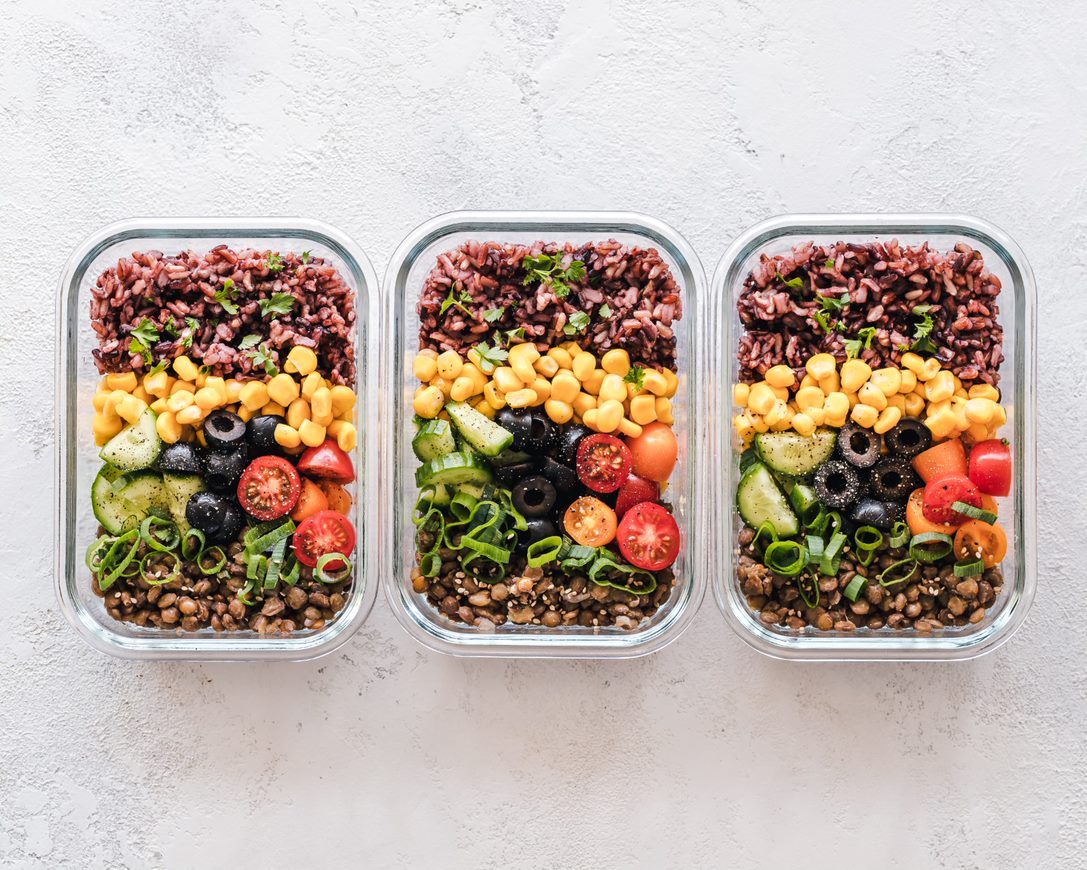What is meal prepping?
Exactly as it sounds, meal prepping is planning, cooking, and assembling meals in advance so they are ready to go during the busy work week. Managing personal and work schedules is a time commitment on its own. Meal prepping is a relatively simple way to save time, energy, money, and stress, all while consuming a more nutrient-rich diet.
Whether you are planning meals for one day or five, meal preparation comes in many forms. No matter how complex your process may be, many health experts suggest meal prepping as a great way to keep your nutritional goals on track. NorthShore Dietitian, Jessica Hicks shares a few common forms of meal prepping:
-
- Prepare meals for five days or just one.
- Prepare each meal in its entirety.
- Prepare lunches for work.
- Prepare separate ingredients like chopped vegetables or cooked meats to speed up the assembly process later.
What are the benefits?
According to the Harvard School of Public Health, there are several reasons to give meal prepping a try.
-
- Saves money. Having nutritious meals in the fridge will help you refrain from dialing the nearest pizza place for delivery after a long day at the office.
- Saves time and energy. Designating certain days and times to preparing meals each week saves time in the long run, plus, it allows you to focus on other important things during the week like family time or self-care.
- Helps with weight control by letting you decide the ingredients and portions.
- Contributes to a more nutritionally balanced diet.
- Can reduce stress by limiting last minute decisions about what to eat.
How do you get started?
Pick your Days: Depending on your schedule, you may opt to do everything in one day, however, many working professionals find it is easier to break the days down into more manageable tasks.
-
- Day 1 – Planning. Choose your meals and make a list of ingredients that will be needed.
- Day 2 – Shopping. Swing by the supermarket after work to pick up everything on your list.
- Day 3 – Prepping. Set aside an hour or two to cook and assemble your meals.
Note: use proper containers! Meal Prep Haven urges meal preppers to find quality containers that are BPA free, freezer safe, dishwasher safe, microwavable, stackable, and reusable.
What foods are good for prepping office meals?
Due to traffic, temper tantrums, or that wonderful snooze button, sometimes breakfast doesn’t fit into the morning process. Lunches can also be a struggle. Between afternoon meetings and presentations, it’s tempting to run downtown to your favorite sandwich shop during a quick break. Preparing food for the office can help keep you energized all day long.
-
- Overnight oats
- Egg muffin cups
- Hard-boiled eggs
- Quinoa
- Brown Rice
- Roasted vegetables
- Grilled chicken breasts
- Wild-caught salmon
- Roasted chickpeas
- Lentils
- Sweet potatoes
- Spaghetti squash
How long can you keep prepped meals in the fridge?
Below are refrigeration rules of thumb to offer the best taste, nutrients, and safety from the Harvard School of Public Health. Click here to see freezer guidelines.
-
- 1-2 days: cooked ground poultry or ground beef
- 3-4 days: cooked whole meats, fish, and poultry; soups and stews
- 5 days: cooked beans; hummus
- 1 week: hard boiled eggs, chopped vegetables
- 2 weeks: soft cheese, opened
- 5-6 weeks: hard cheese, opened

Recipes to get you started
These are a few options to explore, but it is important to find recipes YOU will be excited to prepare and eat. Best of luck on your meal-prepping journey!
Superfood Instant Pot Oatmeal
Quinoa Avocado Spinach Power Salad
White Beans, Wild Rice, and Mushrooms
Chicken Stir Fry
Farro with Confetti Vegetables
Stuffed Pepper Soup
